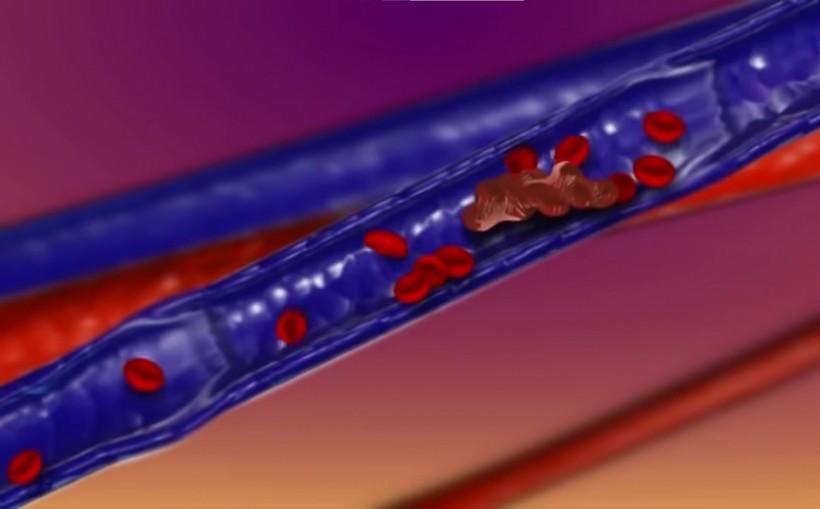When a person gets wounded, blood clots stop the bleeding. Although it rarely happens, blood clots are also one of AstraZeneca's COVID-19 vaccine's side effects, as announced on Wednesday, March 7. But vaccine regulators said that the vaccine's benefits outweigh its side effects.
Blood clots are a necessary mechanism of the body to prevent bleeding, but they could also be dangerous and lead to serious medical conditions.
A person could get blood clots in their arteries, and heart which would hinder them from functioning properly. For instance, a blood clot in the arteries could keep oxygen from getting to other parts of the body and, therefore, will cause life-threatening emergencies like a heart attack or stroke.
Blood clot symptoms usually come on gradually when this happens, so knowing these symptoms could mean the difference between life and death.

How Blood Clots Form Screenshot from YouTube/ Blood Clots
Blood Clot Symptoms
According to Science Alert, blood clot symptoms include shortness of breath and headaches. Other symptoms could also include chest pain, swelling in the legs, and persistent abdominal pain. Also, the person might feel neurological symptoms, like severe and persistent headaches or blurry vision.
Experts said that if blood clots in the arms or legs are most likely way beneath the skin's surface. This type of blood clot is called a deep vein thrombosis (DVT), which is a dangerous type of blood clot because it could travel to the heart and lungs.
Healthline also reported that blood clot symptoms could include a change in color in the arms and legs from red to blue, which is often feels itchy. The person may also feel a dull ache to intense pain in the affected area, while the skin around it may feel warmer.
Moreover, lower leg cramps might also be felt where the blood clot is. It can also cause fluid buildup or edema in the arms or legs, which, when pressed could leave a "pit" or a dimple that remains for a few seconds.
How to Prevent Blood Clots
Agency for Healthcare Research and Quality (AHRQ) said that people should wear loose-fitting clothes, socks, or stockings to prevent blood clots. Remember to raise your legs six inches above the heart from time to time, wear special stockings if the doctor prescribes it, and exercise daily.
Moreover, change your position regularly when on long rides, do not stand or sit for more than one hour at a time, and eat less salt.
Prevent having blood clots also by not bumping your legs and try not to cross them. If possible, use pillows under your knees and raise the bottom of the bed by around four to six inches. Lastly, take all medicines that the doctor prescribes.
What To Do With Blood Clots?
For those suffering from blood clots who felt the symptoms mentioned, it is best to seek a doctor who may give proper medicine to treat it. In most cases, doctors would advise their patients to follow a specific treatment plan.
Meanwhile, for those who received AstraZeneca's COVID-19 vaccine, experts recommend seeking immediate care from their doctors.
RELATED ARTICLE: COVID-19: Autopsies Reveal Blood Clots in Kidneys, Lung Injuries
Check out more news and information on Blood Clots on Science Times.














